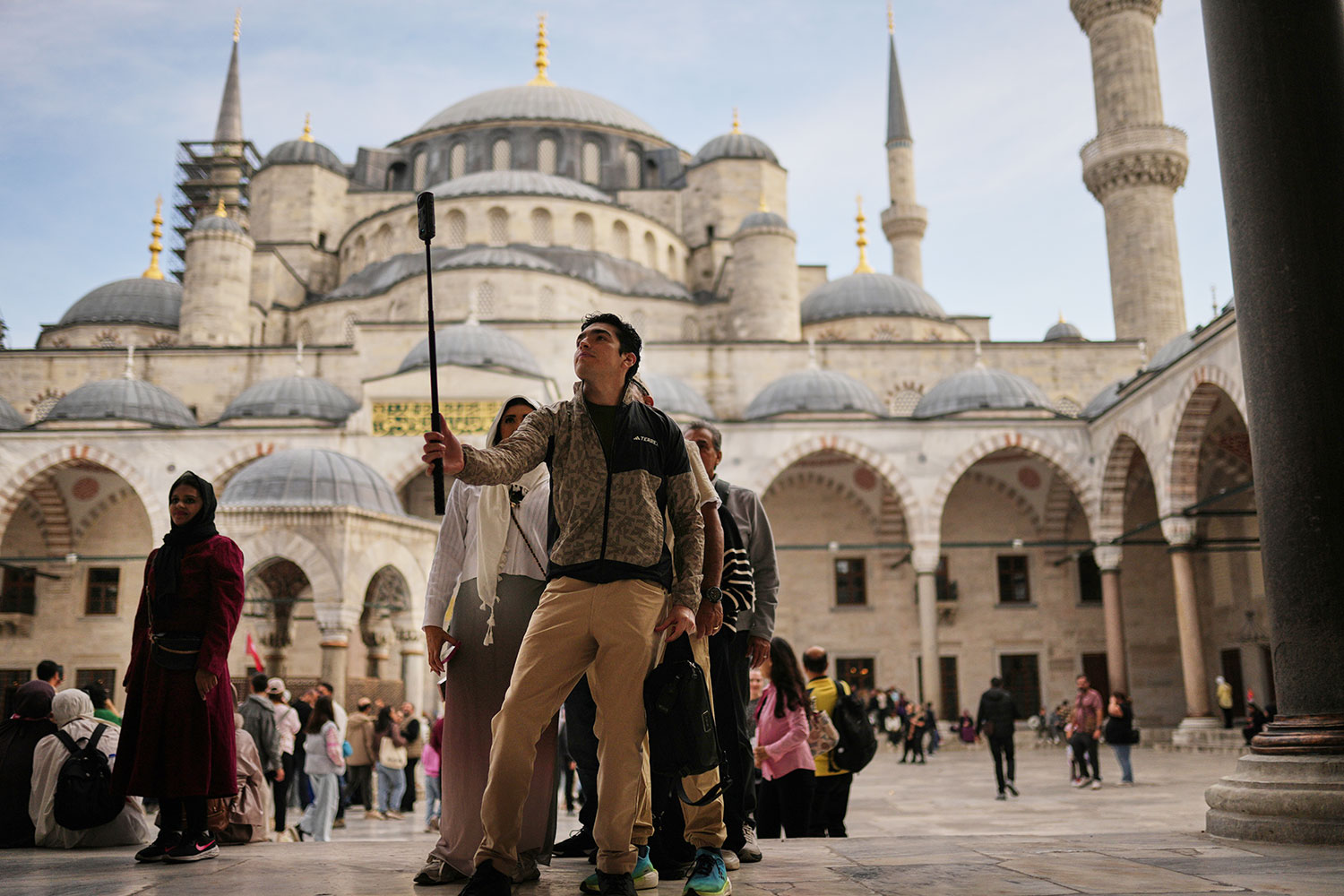
VATICAN CITY (RNS) — U.S.-born Pope Leo XIV will travel to Turkey on Thursday (Nov. 27) in his first apostolic visit since becoming pontiff, and on the day when most Americans will be celebrating Thanksgiving. He is expected to promote dialogue and unity with Christian denominations and Muslim faithful, while making a bid for peace in Ukraine.
The trip takes place on the 1,700th anniversary of the Ecumenical Council of Nicaea, where over 300 bishops gathered under Emperor Constantine and laid out the basis of their shared faith. They wrote the Nicene Creed, a prayer recited by nearly all Christians, and established rules for the celebration of Easter.
The motto of the pope’s trip, “One Lord, One Faith, One Baptism,” reflects his intention to foster communion with Christian denominations across theological and liturgical differences. “The Council of Nicaea is not only an event of the past, but a compass guiding us toward full visible unity,” Leo said during a speech to the Nicaea symposium on June 7.
In the city of İznik, as Nicaea is known today, Leo will be joined by the Ecumenical Patriarch of Constantinople Bartholomew, the spiritual leader of Eastern Orthodox Christians worldwide. Together they will recite the Nicene Creed and commemorate their shared roots before the submerged Basilica of St. Neophytos, where the council fathers may have gathered.
The two church leaders will meet again in Istanbul, once to pray together at the seat of the Ecumenical Patriarchate to offer thanksgiving prayers and a second time to sign a joint declaration. The pope’s trip to Turkey, and especially Nicaea, was already planned by Pope Francis, who signed a joint declaration with Bartholomew in 2014 that voiced commitment to continue working toward unity in a framework of synodality, Francis’ catchall term for inclusion, transparency and dialogue.
But in the context of the meeting between the pope and Patriarch Bartholomew, an emphasis on synodality, a key element of those early church gatherings, may also serve as a bridge to fostering Catholic-Orthodox relations and to downplay papal authority.
The joint declaration would be the fifth one between Rome and Constantinople and will likely address the common foundation of Nicaea, the importance of religious freedom and tolerance, and the preservation of sacred sites.
The number of Christians in Turkey has declined significantly over the past century, dropping from 25% of the population in 1914 to roughly 0.4% today due to political instability, persecution and migration. The Muslim-majority country in practice recognizes only three non-Muslim minority communities: Greek Orthodox, Armenian Apostolic and Jewish. All other religious groups — including Catholics — lack full legal recognition and face significant obstacles to owning property, running schools or opening seminaries.
The Greek Orthodox Halki Seminary has been closed since 1971, and some in the country hope the papal visit will reignite conversations around opening it again.
“We are urged to be what we are supposed to be: to care for the church. Period,” said the Rev. Paolo Pugliese, superior of the Capuchin friars in Turkey, during an online conference. “We have many churches, many different denominations and the blessing of weakness,” he added.
Pugliese explained that the delicate position of Christians in the country “opens a possibility for dialogue,” but relations among Christians vary greatly in Turkey. Catholic clergy in the country focus on establishing personal and informal relationships, he said.
The pope’s meeting with Bartholomew also has implications for the conflict in Ukraine, since the patriarch decided to grant independence, or autocephaly, to the Orthodox Church of Ukraine from the church in Moscow. Politically isolated in Turkey, Bartholomew can gain from the support of the pope and the Catholic Church.
The protection of the legal status of Christian minorities in Turkey and the conflict in Ukraine will likely be among the topics Leo will discuss with President Recep Tayyip Erdoğan when they meet in Ankara on Thursday. Turkey has been a key player in the peace efforts in Ukraine, offering Kyiv-Moscow talks in Istanbul. The Catholic Church has been offering on-the-ground support in Ukraine, helping in the exchange of prisoners, providing aid and reuniting families separated during the conflict.
Erdoğan has increasingly embraced Islamic nationalism, reconverting Hagia Sophia, once an Eastern Orthodox cathedral, into a mosque in 2020 and centralizing power. On Saturday, Leo will visit the Sultan Ahmed Mosque, known as the Blue Mosque and one of the most recognizable mosques in the world. Both Benedict XVI and Francis visited the mosque as a symbol of strengthening Catholic-Muslim relations.
There, Leo will meet the head of the Diyanet, Turkey’s powerful Directorate for Religious Affairs, after a moment of silent prayer in the mosque. On this occasion, Leo will meet with the country’s top official Sunni Muslim cleric in a historic mosque located just across from the now reconverted Hagia Sophia.
Leo’s strong words for peace and ceasefire in Gaza might have a special resonance in Turkey. “In these lands, hearing the words of the pope on what is happening in Gaza was felt very deeply,” said Pugliese, adding that it gave Catholics “more credibility” in the country.
The pope’s visit to Turkey will be fraught with political and religious challenges and represents the first real test of his papacy. Leo has made peace and unity the center of his pontificate so far, and Turkey is the perfect place to stretch his diplomatic and spiritual muscles. On Sunday, the pope will leave Istanbul for Lebanon, where he will be faced with a diverse religious landscape, a fractured country and the shadow of the Israel-Hamas war.
